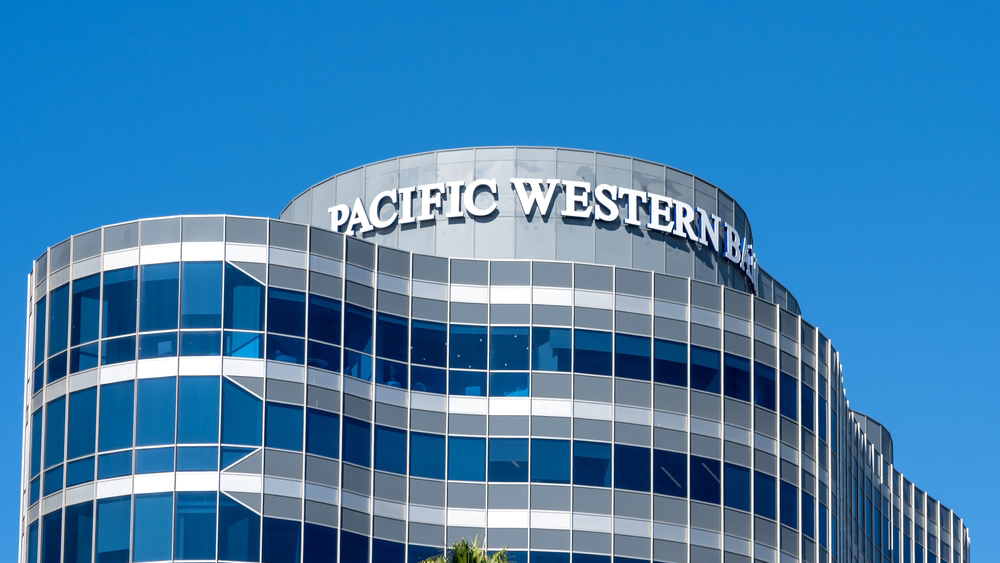PacWest Stock Tanks. TD Bank Acquisition Deal of First Horizon
Trading for PacWest Bancorp was abruptly halted on Thursday after its shares plummeted by nearly 42% to a new record low. Despite efforts to reassure customers and Wall Street by company officials, the stock continued to fall. According to Dow Jones Market Data, if PacWest's stock closes at its current levels, it will experience the largest percentage decrease on record, resulting in an all-time low for its shares.
Following a poor trading day on Wednesday, PacWest (PACW) issued a statement in the evening highlighting the fact that it has not seen unusually high outflows in core customer deposits. As at May 2, 2023 deposits totalled $28 billion and insured deposits hovered around 75%.
PacWest's troubles began when another embattled US bank, First Republic was sold to JP Morgan Chase in a deal that was brokered by regulators and announced on Monday. Since then, PacWest's shares have dropped by 37%. The bank's statement failed to halt the decline, and the stock price continued to fall even during after-hours trading. According to persons who are familiar with the bank, PacWest is considering a number of strategic options including a breakup, capital raise or even a sale. In its statement, the bank indicated that it is currently in talks with potential investors and partners and is committed to maximising value for shareholders.
Since Silicon Valley Bank's collapse, PacWest has been one of the hardest-hit banks. Several US banks with high levels of uninsured deposits or higher risk loan portfolios are at risk of experiencing significant deposit runs. Nevertheless, a PacWest statement revealed, it “paid down $1 billion of borrowings with our excess liquidity…Our cash and available liquidity remains solid and exceeded our uninsured deposits, representing 188% as of May 2, 2023,”
Despite this, RBC Capital Markets analysts maintained their ‘Outperform’ rating after reviewing PacWest's update, which they found to be "helpful". However, D.A. Davidson analyst Gary Tenner downgraded PacWest's shares from Buy to Neutral, noting that market fears, rather than fundamentals, were driving the stock's trading.
Meanwhile, another US regional bank, First Horizon (FHN) is now in limbo after its proposed merger with Canada's Toronto-Dominion Bank Group (TD) fell through. The turmoil in the US regional banking sector could cause a 38% decline in First Horizon’s shares. The two banks cited uncertainty surrounding TD's regulatory approval timetable as the reason for the merger dissolution.
The stock of Western Alliance Bancorp (WAL) dropped by 30.30% when the Financial Times reported that the bank was exploring strategic options, such as selling all or some of its businesses. However, a spokesperson for Western Alliance denied the report, stating that it was "categorically false in all respects". A statement from the bank further opined, “The bank is not exploring a sale, nor has it hired an advisor to explore strategic options.” The spokesperson mentioned that the bank is considering legal actions against the publication.
In a statement released on Wednesday, Western Alliance informed investors that it had not experienced higher than usual deposit outflows within recent times. The bank which has more than $65 billion in assets opined that its capital base was still strong. On Thursday, RBC Capital Markets analyst John Arfstrom wrote in a research note that the data provided by the bank is highly credible. He specifically noted that the "capital ratios were up, and deposits continued the positive trend that has been occurring since the depths of the crisis in mid to late March." According to Arfstrom, he likes the underlying trends of Western Alliance and he thinks they can achieve their targets for deposit growth and meet their earnings expectations. Consequently, he gave the stock a rating of ‘outperform’ with a target price of $59/share.
Activist investor and hedge fund manager Bill Ackman also expressed his concerns and called for “a system-wide deposit guarantee regime” for the U.S. to prevent avoidable bank failures. He stated that, “Confidence in a financial institution is built over decades and destroyed in days…and the next weakest bank begins to wobble as each domino falls.”
UBS analyst Erika Najarian supported Ackman's view, suggesting that the deposit insurance framework should be revised to prevent further bank failures. Najarian also proposed that the Fed and the Treasury should consider creating “a backstop via the Exchange Stabilization Fund (ESF), at least until an Act of Congress can permanently shift deposit limits.”
The US regional banking saga continues.
This content is provided for general information purposes only and is not to be taken as investment advice nor as a recommendation for any security, investment strategy or investment account.

